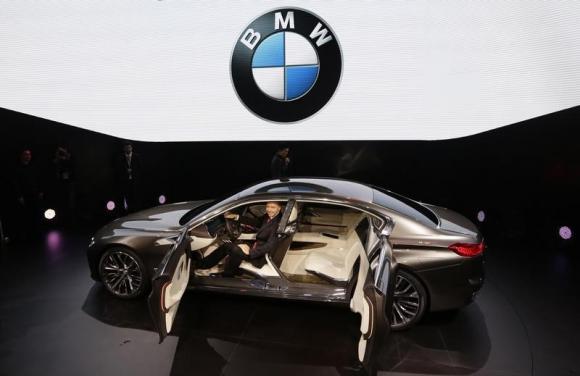|
 |
|
A BMW Vision Future Luxury concept car is displayed during its world premiere ceremony at Auto China 2014 in Beijing April 20, 2014. [Photo/Agencies] |
After years of outsized growth that turned China into the world's biggest car market, a slowdown is exacerbating tensions between global automakers and local car dealers, with smaller margins leading to tougher negotiations over sharing profits.
The dispute is turning costly for some of the auto firms, who have agreed to shell out hundreds of millions of dollars to keep the peace.
Spearheading the backlash is the China Automobile Dealers Association (CADA), a dealer trade body which earlier this week went public with an announcement that it had persuaded German automaker BMW to pay 5.1 billion yuan ($820 million) in compensation to dealers for lower than expected 2014 profits.
CADA took the unprecedented step of giving interviews to foreign media to announce the deal. BMW has not confirmed the 5.1 billion yuan figure but says it has reached a deal which does not require it to modify its 2014 profit target.
BMW is not alone. Volkswagen-owned Audi has pledged 2 billion yuan in subsidies, two sources with direct knowledge of the matter told Reuters. Daimler has paid China-based Mercedes dealers about 1 billion yuan, two sources familiar with the matter told Reuters. Both companies declined to comment on the figures.
And subsidies are not the only issue. Dealers also complain of high sales quotas, which can hurt their margins. Porsche, also owned by Volkswagen, has imposed a target to increase sales in China this year by 40 percent to 64,000 cars, which its dealers want scaled back, said a CADA official who declined to be identified. Porsche declined to comment.
The disputes are signs that the Chinese auto market is shifting gears from a period in which car makers and dealers scrambled to keep up with demand, to a new era in which China functions more like a mature market.
In 2013, the Chinese bought 492,000 Audis, 362,000 BMWs and 228,000 Mercedes, making the country an important battleground for the big German luxury brands.
But increasingly, Chinese drivers are more careful about prices and less willing than before to pay more than customers in other parts of the world. That means profit margins are lower, and dealers argue that they need bigger subsidies from the manufacturers to stay afloat.
